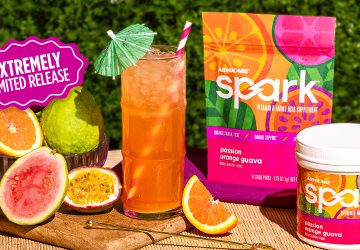When we talk about our food cravings, we often times associate them with negative outcomes like weight gain or stress. But, food cravings may actually be your body’s way of trying to communicate a lack of a particular mineral, nutrient or vitamin in your diet. Tweet This!
The next time you experience cravings for chocolate, a huge bowl of pasta packed with carbohydrates or something a little salty like a bag of potato chips, ask yourself, “What is my body potentially trying to tell me?
Coffee or tea.
A craving for coffee or tea may go beyond the need for a little caffeine for a quick pick me up. It may indicate that your body needs sulfur or iron. Iron is important for the transport of iron in the blood from cell to the other; sulfur plays an important role in liver metabolism as well as helps to maintain the health of joint cartilage, hair and skin. Instead of drinking coffee or tea, try eating a kale salad, spinach or lean sources of beef, pork, chicken and fish. To increase the absorption of iron, it is good to also eat foods that are high in vitamin C like citrus fruits, dark leafy greens, melons and strawberries.
Salt.
The American Heart Association recommends that adults consume between 1,500 and 2,400 milligrams (mg) of salt per day which is equivalent to about 1 teaspoon of salt. The average American, however, consumes closer to 3,400 mg each day. A desire for extra dashes of salt on your food may be a habit, but it could also mean that you need more minerals like calcium, magnesium, zinc and sodium. Many minerals taste salty, so when your brain sends out a message to consume more salt, it may be really asking for more minerals. Minerals are an essential component to metabolic processes that occur in the body. They are needed for neurochemical reactions, muscle contraction as well as building blood and hormones. Here is a short list of healthy food options that offer magnesium and zinc:
- Magnesium: dark chocolate, dark leafy greens and pumpkin seeds
- Zinc: lamb, pumpkin seeds and chickpeas
Ice.
Chewing ice could be your way of cooling off during hot summer days, but if you find yourself craving ice often, it may mean something. Craving ice could be a sign that you need more iron. Tweet This! As previously mentioned, iron plays an important role in oxygen transport in the blood but also many metabolic processes. Red meat, figs, apricots, broccoli, lentils and sardines are all good dietary sources of iron.
Chocolate.
If you find yourself turning into a chocoholic, there may not be enough magnesium, chromium or B vitamins in your diet. Tweet This! To add more magnesium into your diet, try adding Brazil nuts, leafy greens, brown rice or pumpkin seeds as food choices. Chromium is found in raw onions, broccoli, potatoes and green beans. B vitamins are naturally found in animal products like fish, poultry, eggs and dairy. If it has to be chocolate, try adding cocoa powder to a morning smoothie instead of opting for the “oh, so tempting” king sized candy bar in the grocery checkout line.
Fried Food.
Craving fatty foods such as fried food may signal that you need more essential fatty acids in your diet. The body needs a certain amount of healthy fats. Fats help to make up the lipid bilayer (outer layer) of cells, create lipid hormones and form insulation layers for specialized nerve cells (myelin sheath). You can incorporate good fats into your meals by adding avocado, nuts and nut butters, olive oil, coconut oil, salmon, and flax seed. Tweet This! If your sensory neurons have become accustomed to the sensation of crispy or crunchy foods, try baking chicken or green beans with corn flakes or bread crumbs.
Carbohydrates.
If you are craving carbohydrates like bread, cookies and pastries, it is probably because your body needs an immediate boost of energy from simple sugars found in carbohydrates. Tweet This! Carbohydrates are one of the four macromolecules needed for life. Monosaccharides/simple sugars, like glucose, are considered one of the most important sources of energy for humans. Carbohydrates provide short-term and intermediate-term energy. The best type of carbohydrates to consume are complex carbohydrates such as whole grains, fruits, beans and vegetables. Tweet This!
If your cravings continue, it is always wise to contact your primary care physician to get better insights into possible underlying health conditions. Cravings can be hard to avoid, but once we know the cause of them, we can figure out how to overcome them.
References





